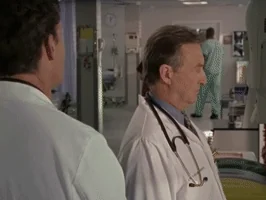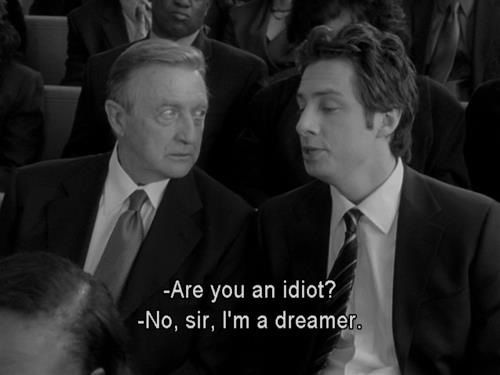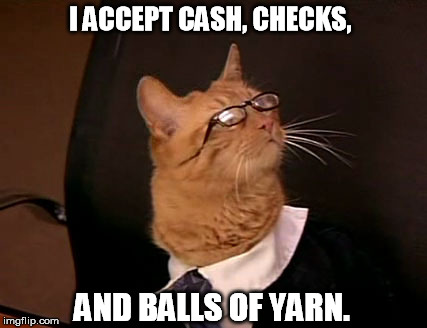PL: Where exactly did the idea for Sir Edric and Dog come from? I've always been curious as I could see lots of guys who look like Sir Edric in fiction, but was never sure which ones in particular you were inspired by.
TW: The idea for Sir Edric came after I wrote Bane of Souls. It's a story centred on a fictional city, with an array of characters (as you'd expect). Amongst them is a pompous chevalier, and a self-regarding and quite corrupt Captain of the Watch. Somewhat disconcertingly, I found it very easy to write a wealthy, selfish bounder of a man and, as such a man lends himself to comedy, I thought I'd give it a crack. When what became the opening to the first book went down well on SFF Chrons, that was a green light for me to continue.
Dog's a bit different. I wanted Sir Edric to have a sidekick but to avoid either a Blackadder/Baldrick approach (the servant being an imbecile) or the reverse, whereby the knight would be useless. Whilst Dog's utterly heroic and Sir Edric's motivated by self-preservation, the knight is no fool.
PL: Ah! Bane of Souls. We'll have to return to that later. But right now Sir Edric. The rough level of equality between the two is definitely unusual and I do like the dynamic it gives. Do you find there's a difference in writing character dynamics when writing straight-up comedy and when writing more serious books?
TW: Yes, although that's at least partly down to Sir Edric's stories being entirely from his perspective, whereas my 'serious' stories are multi-POV. That means everybody's defined by Sir Edric's relationship with them. There's also, often, a vast yawning chasm between his internal monologue and his actual words/deeds (which is something I think we can all relate to. When your boss gives you an impossible task or your girlfriend has ordered a salad but decides to steal half your chips, most men have a gulf between their thoughts and words).
The Sir Edric-Dog relationship is the key one. They're clearly not equals, but the relationship falls into a grey area between friendship and master-servant. Dog's heroic in almost every way, but his pathological loyalty to a man who absolutely doesn't deserve it makes a vice of a virtue.
PL: Personally, people who steal my chips find out what my fork is actually for... but enough of that. I have to say I've always found Dog's pathological loyalty to Sir Edric puzzling. Do you ever plan to reveal why, or is it one of those secrets that are better to keep? Are there any other of Sir Edric's relationships you find particularly fun to write? And what's your favourite character dynamic in Sir Edric and the Plague?
TW: Sir Edric and Corkwell are quite nice. He's obviously a womaniser, but having a dominatrix paramour introduces an element of control and danger if he strays too much. It also prevents her from being 'just another bedwarmer'.
In Plague, I liked Jasper a lot. He's a twelve foot golem, practically invincible, but has the mind of a small boy (he's only four). Sir Edric and his other companions are more sophisticated but Jasper's uncomplicated and affable, and the contrast works well.
As for Sir Edric and Dog, that's going to remain a secret. Probably.
PL: Ah, I was hoping you'd mention Jasper. He was a definite highlight of the book for me. You use a very wide Fantasy palate when it comes to Sir Edric if that makes sense - is that deliberate? Or just one of those things where if you think it'll be fun you throw it in?
TW: In terms of both drawing on different areas of fantasy and comedy, that's something I try to do. There are plenty of monsters from Greek myths used (and the elves use mostly Greek-ish names), but there are odd references to classics like Lord of the Rings and the Eagle Question. I think it works because Sir Edric's a cynical realist, so the fantastical nature of elves and magic often founders on the rock of his (fairly) down-to-earth perspective (hence mocking them as wand-fondlers). Varying the comedy often comes from changing who Sir Edric encounters, from the enthusiastic but naive, to violent man-eaters (like Orff No-Balsac). Variety helps keep things fresh.
 |
| Speaking of fresh, here is Sir Edric himself with a large amount of foliage |
PL: Speaking of variety keeping things fresh - lets go back to Bane of Souls (my first and favourite of your books) and your other more dramatic books, such as Kingdom Asunder. What about writing those stories scratches the itches that Sir Edric can't?
TW: I like comedy a lot, but it has a necessary comic strain running throughout. A comedy that doesn't make you like or smile doesn't work. 'Serious' books can have more emotional highs and lows, differing moods, and can retain occasional comedy (in Kingdom Asunder I like James' flowery repartee, and in Bane of Souls think Roger, and Rufus' commentary on the challenge of trousers, quite amusing). It's especially difficult trying to mingle comedy and sorrow, as they're such diametrically opposing emotions, expressing levity and gravity.
PL: Are there any further plans for more of these non Sir Edric books?
TW: Well, I need to finish off The Bloody Crown Trilogy, so there's definitely that. Sometimes I toy with the idea of a plague aftermath story or something similar. I like Sir Edric and Dog a lot, but other styles of writing too so (final part of the trilogy aside) it's likely I'll keep writing 'serious' stuff, although I don't have any specific plans at the moment.
PL: How do you go about writing your books anyway, to change topics? Are you a planner or a discovery writer?
TW: Generally, I plan the whole story fairly closely but leave (for comedy) some play in the chapters to add or remove things, or alter them, based on how things are going. I think planning's useful scaffolding for keeping things pointing in the right direction, to mix metaphors horribly, but sometimes things work a lot better or worse than expected. When that happens, it's daft to be chained to a plan.
PL: And is this how you've always wrote? Or has your process changed as you've finished more books?
 |
| To paraphrase AC-DC, dirty deeds at a dirt cheap price |
TW: It varies quite a bit. For serious stuff, particularly with Bane of Souls (which is the first I wrote set in the same world as Journey to Altmortis and The Bloody Crown Trilogy) I did a lot of world-building before I even started writing, because I wanted to keep the world consistent and cohesive. For Sir Edric's assorted shenanigans, I had certain ideas in mind (him loathing elves, and the Ursk [nine foot tall slavers who see humans as a sort of edible currency]) but I mostly fill in the details as I go along.
With the earliest Sir Edric stories I'd make up 95% as I went along. That's huge fun but can also make it slow going when things get bogged down. Because of that, I plan a little more now to help stop slowdowns (worked well for the latest work-in-progress. Excepting the first two, each chapter only took an average of three days or so). Experience is also helpful because redrafting and editing means you sometimes spot future problems at the drafting stage, saving pain down the line (same as for most activities, you stop making rookie errors when you're not a rookie any more).
PL: Ah yes. Poor elves. I've always wondered whether that was just you finding it amusing or you disliking elves. Are there any fantasy tropes you particularly dislike?
TW: Hmm. Whilst I'm not fond of elf-worship (there can be a tendency to portray them as wiser/more in tune with nature/fairer than humans) I don't dislike them as Sir Edric does. Took me a while to think of a trope I dislike, but the end of the Lord of the Rings, which exemplifies the fodder race trope, does irk me a bit. Inherent pure evil or goodness, even in high fantasy, seems quite incredible. Couldn't an orc make a decent mercenary? Or guard? Or blacksmith?
PL: No such thing as a decent guard. Anyway - are there any fantasy tropes you'd like to see more of?
TW: Not necessarily a trope, but I do enjoy morally ambiguous characters. The uncertainty means you can't predict the plot as easily, and also gives a character a greater range of actions because they're not pigeon-holed into good or evil. (Sir Edric's not a villain or a hero. Amidst the comedy, he does do quite a number of dubious things, and it's nice being able to have him just smack someone on the back of the head if it makes sense for his desired self-preservation).
PL: Finally - my standard question - what's the best and worst pieces of writing advice you've been given?
TW: Not sure I listen to advice enough to give a good answer to that. Mind you, at school an English teacher advised that writers overuse 'said' and other dialogue tags (declaim, shout, protest etc) should be used. That's rubbish advice. 'Said' is one of those words that becomes almost invisible, and countless pointless variations can just look like the writer swallowed a thesaurus (obviously, sometimes other tags are needed, but mostly not). The best advice, and I can't remember who gave it, alas, was that the first draft is like telling yourself the story. It doesn't need to be perfect or anywhere near perfect. Like scaffolding on a construction site, as long as it gives you the skeleton of the story you can change the rest in redrafting. Don't stress about a first draft being a bit rubbish (recently wrote a blog about this for Kraxon, incidentally. Ch4 of The Adventures of Sir Edric was a mess at first, but thorough redrafting made it perhaps my favourite in the whole story).
Thanks to Thaddeus for taking the time to answer my questions. If you want to learn more about his books, visit his blog here or go to his Amazon author page to buy them.











